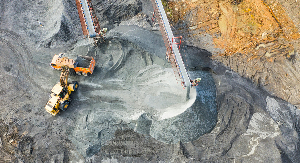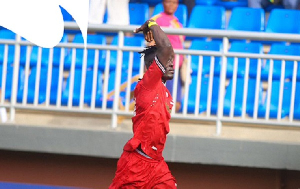The Ghana Mine Workers Union (GMWU) has called for the urgent passage of the reviewed Labour Act into law.
It said the current law had outlived its usefulness and needed to be updated to meet present-day demands.
The Secretary General of the GMWU, Abdul-Moomin Gbana, made this call at the Ghana Mine Workers Union (GMWU) of the Trades Union Congress (TUC) National Executive Council second half-year meeting in Accra on Tuesday.
The forum deliberated on labour issues, national development, and the upcoming 2024 elections.
Mr. Gbana urged the President, Nana Addo Dankwa Akufo-Addo, to ensure the reviewed Labour Act is passed before leaving office.
Over the past decade, he observed, there had been a significant reduction in quality employment opportunities, not only within the mining industry but also across the broader Ghanaian economy.
This decline, he noted, stemmed from a shift in employment patterns, transitioning from traditional or permanent roles to various non-standard employment arrangements such as temporary roles, casual work, and fixed-term contracts.
He explained that this shift had heightened employment vulnerability due to indiscriminate outsourcing and the fragmentation of production. This, he said, had unprecedented effects on Ghanaian workers.
“Indeed, as a result of this significant shift, workers now have lower levels of employment protection, higher degrees of uncertainty, and face greater risks of workplace accidents or injuries. There has been a surge in workers’ and trade unions’ rights violations, shrinking collective bargaining coverage, job insecurity, threatened social protection cover, and fluctuations in income and pensions,” he stated.
Additionally, Mr. Gbana highlighted that it was against this backdrop that the Ghana Mine Workers Union launched a vigorous five-year campaign to draw the government's attention to the need to review the Labour Act 2003 (Act 651). The aim, he said, was to address implementational gaps and challenges, making the law more responsive to the evolving needs of stakeholders in industrial relations.
He noted that GMWU was aware of progress made in reviewing the Labour Act.
On elections and illicit financial flows, Mr. Gbana remarked, “One critical area that continues to undermine all our efforts as trade unions and as a country is corruption.”
He noted that trade unions, including the Ghana Mine Workers Union, had largely avoided tackling corruption and related offenses.
“In fact, given the spate of corruption and aborted corruption scandals since the Fourth Republic, and the extent of notoriety it has gained in recent years, the debilitating impact on Ghanaian society and, by extension, the African continent underscores the urgent need to confront this deadly cancer head-on,” he emphasized.
Mr. Gbana also cited an African Union estimate that 25% of the continent’s Gross Domestic Product (equivalent to $148 billion) is lost to corruption annually.
In Ghana, he pointed out, IMANI Ghana estimated that $3 billion is lost to corruption annually—an amount equal to what Ghana is currently seeking from the International Monetary Fund.
Click to view details



Business News of Sunday, 1 December 2024
Source: ghanaiantimes.com.gh
Mine Workers Union calls for urgent passage of reviewed Labour Act into law
Opinions
















